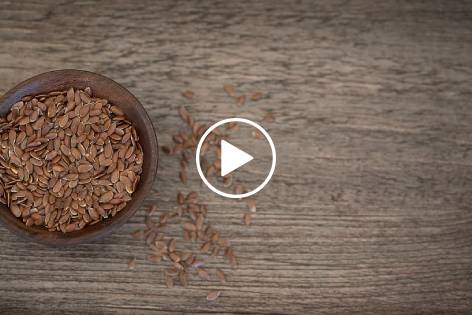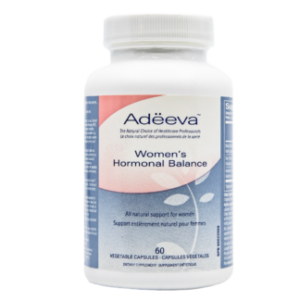
Unraveling the Protective Power of Flaxseed: A Revolutionary Approach to Breast Cancer Prevention
Source: Journal Microbiology Spectrum (December 7, 2023)
Lifestyle Medicine Update (December 14, 2023)
Introduction: Harnessing Nature’s Shield
The quest for effective breast cancer prevention strategies has led researchers to explore the potential of natural compounds, among which flaxseed has emerged as a beacon of hope. Renowned for its rich reserves of lignans, flaxseed presents a promising avenue in mitigating breast cancer risk, as elucidated in the recent findings published in the Microbiology Spectrum journal on December 7, 2023.
The Flaxseed Phenomenon: A Tale of Lignans and MicroRNAs
- Lignans’ Anticancer Arsenal: Ground flaxseed, a veritable treasure trove of lignans, holds the key to breast cancer prevention. Through a remarkable metabolic journey, the lignan precursors in flaxseed metamorphose into enterolactone and enterodiol, ushering in a cascade of anti-cancer effects within breast cells. These lignans, upon reaching breast cells, orchestrate a symphony of cellular responses, from stalling cell division to orchestrating the demise of nascent cancer cells.
- MicroRNAs: The Epigenetic Maestros: Delving deeper into the molecular realm, researchers have uncovered the pivotal role of microRNAs (miRNAs) as epigenetic orchestrators, regulating gene expression and dictating cellular fate. Armed with this knowledge, scientists embarked on a groundbreaking expedition to decipher the interplay between flaxseed and miRNAs in breast cancer prevention.
Illuminating Insights: Unveiling Flaxseed’s Hidden Mechanisms
- Murine Marvels: Unraveling Flaxseed’s Mysteries: Employing a murine model, researchers unveiled a fascinating revelation – feeding female mice ground flaxseed elicited a profound transformation in miRNA profiles, tipping the scales in favor of breast cancer prevention. Notably, flaxseed supplementation bolstered the expression of miRNA-137 and miRNA-340-5p, heralding a paradigm shift in breast cancer susceptibility.
- Genetic Guardians: A Molecular Odyssey: The protective prowess of flaxseed lay in its ability to silence the oncogenic genes Runx2 and Skp2, thereby thwarting the insidious progression of breast cancer. By quelling the activity of pivotal signaling pathways implicated in cancer development, flaxseed emerges as a potent guardian against breast cancer stem cell regeneration, a hallmark of tumor initiation and progression.
Empowering Prevention: A Call to Action
- Flaxseed: A Potent Ally in Cancer Defense: Bolstered by compelling evidence, the recommendation to incorporate 2 tablespoons of ground flaxseed daily resonates as a formidable strategy in breast cancer prevention. Beyond its role in breast cancer, flaxseed’s protective mantle extends to prostate health, underscoring its multifaceted benefits in safeguarding reproductive organs.
- Embracing Nature’s Bounty: As research continues to unveil the myriad benefits of flaxseed, from cholesterol management to intestinal health, its status as a superfood remains unassailable. By harnessing the innate protective mechanisms of flaxseed, individuals embark on a transformative journey towards holistic well-being and cancer resilience.
Conclusion: Pioneering the Path to Wellness
In the ever-evolving landscape of cancer prevention, flaxseed stands as a testament to nature’s healing potential. Armed with scientific insights and empowered by nature’s bounty, individuals wield flaxseed as a formidable shield against breast cancer’s insidious grip.
References
- Wu H et al. *Cecal microbiota and mammary gland microRNA signatures are related and modifiable by dietary flaxseed with implications for breast cancer risk.* ASM Journal/Microbiology Spectrum. December 7, 2023. [Link](https://journals.asm.org/doi/10.1128/spectrum.02290-23)
- Denmark-Wahnefried et al. *Flaxseed supplementation (not dietary fat restriction) reduces prostate cancer proliferation rates in men presurgery.* Cancer Epidemiology Biomarkers and Prevention J. 2008; 17(12): 3577-87. [Link](https://pubmed.ncbi.nlm.nih.gov/19064574/)
Recommended Supplements

Dr. James Meschino
ABOUT THE AUTHOR
Dr. James Meschino, DC, MS, ROHP, is an educator, author, and researcher having lectured to thousands of healthcare professionals across North America. He holds a Master’s Degree in Science with specialties in human nutrition and biology and is recognized as an expert in the field of nutrition, anti-aging, fitness, and wellness as well as the author of numerous books.


